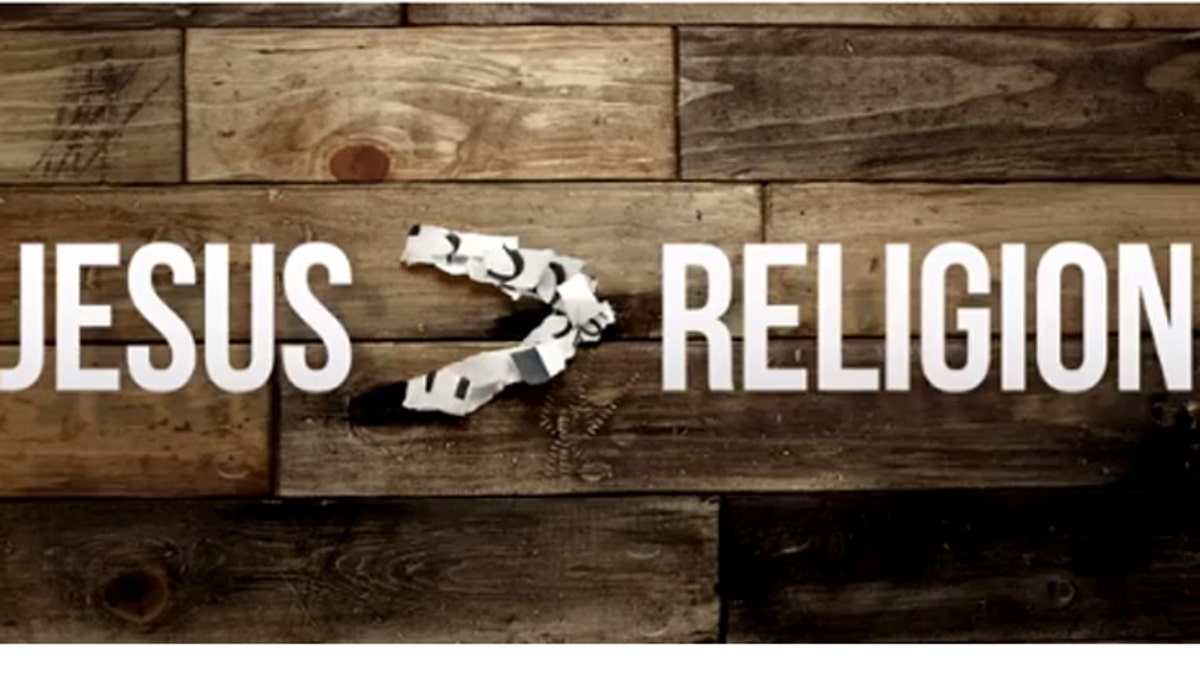
A screenshot of Jefferson Bethke introduction video to his Youtube series, "Why Jesus Still Hates Religion (And You Should Too)." (Jefferson Bethke/Youtube)
As the “who’s in and who’s out” debate -- recently criticized by Pope Francis -- storms on within the church, many voices declare that all would be well in America if we could just return to “conservative Christian biblical values.”
But they’re fighting the wrong battle. In fact, they might actually be a part of the problem, not the solution.
Jesus isn’t after restoring America as “Christian” or getting back to the good ol' days. (Side note, by the way: it really bothers me when people say they want to get back to the “good ol' days,” as if white people owning black people as property and women being seen as second class citizens was somehow “good”.)
[pullquote]
The “if only” mentality is everywhere.
“If only we could go back to when Christians were the majority.” “If only we could go back to when gay marriage was illegal.”
The problem I have with this “if only” mindset is, Jesus never spoke of such a thing. Never once do I read the New Testament and see Jesus saying, “You know what would be nice, Peter? If you get a bunch of people to get prayer into public schools!”
In fact, it’s almost as if Jesus assumed that the normal societal powers would dislike his followers because the usual tools of the state (manipulation, fear, coercion, even death) seemed peculiarly ineffective against the disciples.
“Christian” literally means “little Christ.” So, if we say we are a Christian, we are to be a little Jesus -- attempting to emulate his behavior and language. That means if we want to bring about change in our cities, schools, etc., we need to look at how he did it.
Did he say, “Let’s make sure the 10 Commandments stay in the courthouse!”
Or…
“Man, if only they stopped saying 'happy holidays' and really stood firm on 'Merry Christmas,' the world would be a better place.”
No.
When you read Acts, the story of the early Church, you see that Christians had zero governmental power and never pushed political agendas. In fact, they were even seen as enemies of the state in some regions.
The Roman Empire didn’t like this group of people who worshipped an executed Jewish rabbi. They were the rejects, the mess ups, the marginalized, and the broken.
No one looked at the first Christians and thought, “Oh yeah, they are definitely going to change the world!”
But they did. They turned it upside down.
The question is, how?
I’d argue by the power of forgiveness, reconciliation, and sacrificial love.
They went around telling everyone they didn’t need to live in the old system -- there was a new king and that was good news! A new way, a new world, a new life had been inaugurated at the resurrection of Jesus. He literally kicked a hole right in the center of darkness, bringing new life to all who claim He is Lord.
How does this look in practice?
Well, take gay marriage for example. How about instead of trying to legislate morality and do everything in your power to vote gay marriage down, you walk across the street and invite Chuck, your gay neighbor, over for dinner?
Ask him how you can serve him. Ask him how he’s been hurt by certain ways of thinking. Ask him how you might be a good neighbor to him.
Because let’s be honest, the tides are changing and we are no longer the moral majority, but rather the prophetic minority. And personally I’d like to be known as the minority that shows love in such a way it turns the world upside down.
If the “religious” people of the day are spewing the same charge against us as they did in Acts 17 (see below), then we are probably doing something right.
“These men who have turned the world upside down have come here also [….] and they are all acting against the decrees of Caesar, saying that there is another king, Jesus.” Acts 17:6








































